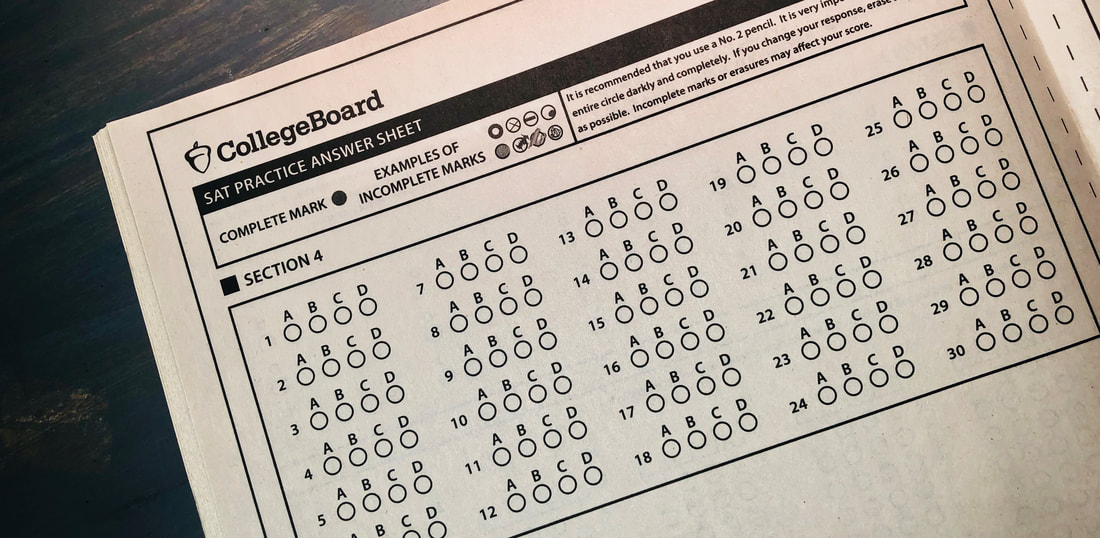|
As more and more universities announce a test optional policy for this application season, many students and families are celebrating with the assumption that tests no longer count and that acceptances will be easier. This is a big, BIG fallacy that must be addressed so that students best position themselves going into their upcoming college applications.
First, it's important to understand what a school means by "test optional." Historically, the vast majority of universities have required an ACT or SAT score as part of the application process. The test scores along with high school GPA and rank normally carry the greatest weight in an acceptance decision. Yes, many schools consider their applicants "holistically" which means that many other factors such as the essay, recommendation letters, activities, demonstrated interest, etc. all come into play. But, we'd be delusional to think that anything matters more than grades and scores (except financial contributions, but that's a whole other blog post!). As campuses were shut down and large group gatherings discouraged, testing has become impossible in most areas, Despite ongoing registrations, test administrations are continually being cancelled. This has meant that countless students have yet to even take an actual SAT or ACT. While there was some discussion of an online option, that has yet to manifest. Thus, there are tens of thousands of rising high school seniors preparing to apply to their colleges without a score to provide. This is why schools are being forced to go test optional for this year. Some students may not have the option of taking a test before they submit their applications. It's important to understand that these schools (most of them) are not test-blind. In a test-blind application situation, none of the applicants are supplying test scores, so the applicants are being compared using the same measures. In a test optional situation. You may have some students submitting scores and some who aren't. And those who aren't may HAVE had the opportunity to take the test but just aren't pleased with their scores. So how are colleges going to compare students fairly? I've been attending college admissions virtual sessions and reading up on how colleges are intending to make this shift. Overwhelmingly, I get the feeling that students who have had an opportunity to take a test, should absolutely submit their scores. In the case of students who were able to take a school-administered test at their high school, the university will likely be informed as part of the school profile provided by the counselors that the test was administered. There are few scenarios where not submitting a score (that you already have) can be advantageous. Be sure that you are in touch with the universities on your list and are fully aware of any changes to their testing policy this year. It's important to understand that the application process is still extremely competitive, maybe even more so now than ever. It's imperative that you provide your colleges with a complete view of your capabilities and unique offerings. And, hang in there. There is much more to life than college applications, so stay safe, stay happy, and keep looking forward!
0 Comments
Your comment will be posted after it is approved.
Leave a Reply. |
Author
I am a wife, mom, and educator. I love learning and helping others learn. Few things are more rewarding than helping kids find their way. Archives
December 2021
Categories |
Cassie Friend
College Admissions Consultant
Katy | Houston | Online
College Admissions Consultant
Katy | Houston | Online


 RSS Feed
RSS Feed

